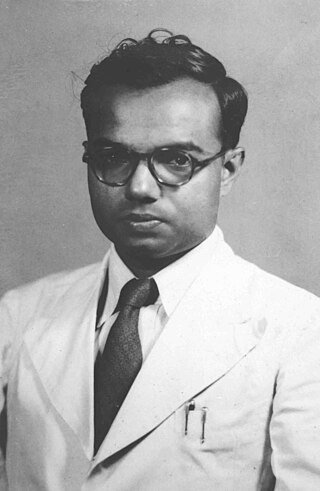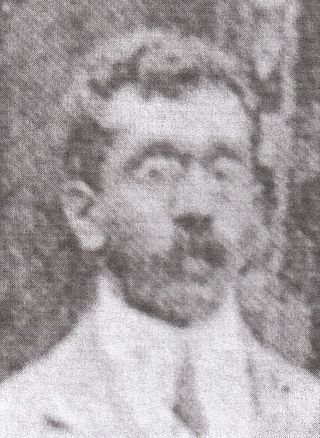
Legal education is the education of individuals in the principles, practices, and theory of law. It may be undertaken for several reasons, including to provide the knowledge and skills necessary for admission to legal practice in a particular jurisdiction, to provide a greater breadth of knowledge to those working in other professions such as politics or business, to provide current lawyers with advanced training or greater specialisation, or to update lawyers on recent developments in the law.
The University of Colombo is a public research university located primarily in Colombo, Sri Lanka. It is the oldest institution of modern higher education in Sri Lanka. Specialised in the fields of natural, social, and applied sciences as well as mathematics, computer sciences, and law. It is ranked among the top 10 universities in South Asia.
Justice Mark Damien Hugh Fernando, PC was a jurist and former judge of the Supreme Court of Sri Lanka. He died after a long bout with cancer on 20 January 2009. He was known as a Judge who stood up for judicial independence and the integrity of the profession.

Education in Sri Lanka has a long history that dates back two millennia. While the Constitution of Sri Lanka does not provide free education as a fundamental right, the constitution mentions that 'the complete eradication of illiteracy and the assurance to all persons of the right to universal and equal access to education at all levels" in its section on directive principles of state policy at (27. Sri Lanka's population had an adult literacy rate of 96.3% in 2015, which is above average by world and regional standards. Computer literacy in 2017 28.3% and phone users in 2017 105%, website users 32% in 2017. Education plays a major part in the life and culture of the country, which dates back to 543 BC. Sri Lanka's modern educational system modeled after Christian missionary system was brought about by its integration into the British Empire in the 19th century. Education currently falls under the control of both the Central Government and the Provincial Councils, with some responsibilities lying with the Central Government and the Provincial Council having autonomy for others. Education institutions with a tradition dating back to 5 BC are largely ignored by the state.
An admission to practice law is acquired when a lawyer receives a license to practice law. In jurisdictions with two types of lawyer, as with barristers and solicitors, barristers must gain admission to the bar whereas for solicitors there are distinct practising certificates.
The policy of standardization was a policy implemented by the Sri Lankan government in 1971 to curtail the number of Tamil students selected for certain faculties in the universities. In 1972, the government added a district quota as a parameter within each language. In 1977 this policy was annulled and new policies were implemented for a fair education. Now, students from districts with inadequate educational facilities are given an allocated quota irrespective of their race.

Ranabima Royal College also known as Royal College, Ranabima is a provincial school in Gannoruwa near Kandy, Sri Lanka. The school is surrounded by Gannoruwa and Hanthana Mountains, and is situated on the bank of the Mahaweli river. Dividos sanctuary is located just beside the school, as are the Royal Botanical Gardens and University of Peradeniya. The agricultural research facilities of the Department of Agriculture are also located beside the school. The school is approximately 2 km (1.2 mi) from Peradeniya via the New Colombo–Kandy highway and approximately 6 km (3.7 mi) from the centre of Kandy.

General Sir John Kotelawala Defence University (KDU) located at Kandawala, Ratmalana, Colombo, is a university which is administered by the Ministry of Defence.

Mapatunage James "M. J." Perera was a Sri Lankan civil servant with nine members in his family in Udumulla, Padukka. He created broadcasting history by being the first Ceylonese Director General of Radio Ceylon, the oldest radio station in South Asia, taking over the helm from John Lampson of the BBC.
The University of Sri Lanka was the public university system of Sri Lanka from 1972 to 1978.

Charles Alwis Hewavitharana, FRCS, LRCP was a Ceylonese (Sinhalese) physician who played a significant role in Sri Lanka's Independence and Buddhist Revival movements. He was the brother of Anagarika Dharmapala.

Lakshman Namal Rajapaksa is a Sri Lankan politician. He is the eldest of son of Sri Lankan former President and Prime Minister Mahinda Rajapaksa and a member of parliament. He was the Minister of Youth and Sports from 2020 to 2022.
The University of Colombo currently has seven faculties with 41 academic departments and two interdependent schools with five academic departments. All faculties and schools carries out courses of study and research in both graduate and undergraduate studies. In addition, the university has several institutions that specialize in different areas of research.
Rear Admiral Sarath Palitha Fernando, PC, VNF is a Sri Lankan lawyer. He is the former Attorney General of Sri Lanka and had served as Solicitor General of Sri Lanka and Judge Advocate of the Sri Lanka Navy.
Higher education in Sri Lanka is an optional final stage of formal learning following secondary education. Higher education, also referred to as tertiary education occurs most commonly universities or degree-granting institutions. These may be public universities, public and private degree-granting institutions which award their own degrees or degrees from foreign universities. High visibility issues include limited capacity of public universities to cater for the demand and opposition to private universities from certain segments.

Deshamanya Justice Henry Wijeyakone Thambiah (1906–1997) was a Ceylonese academic, diplomat, lawyer and judge, born in Sri Lanka during British colonial rule. He was a Commissioner of Assize, High Commissioner and judge of the Supreme Courts of Ceylon and Sierra Leone.
Charles Dahanayake was a Sri Lankan born academic who was the Founder Professor of Physics and former Dean of Faculty of Science, University of Kelaniya. The author and translator of many Sinhalese Physics books, he was the founding president of the Institute of Physics, Sri Lanka (IPSL).
Deshamanya Weligamage Don Lakshman popularly known as Professor W. D. Lakshman is a Sri Lankan economist, professor, lecturer, academic and author who also served as the 15th Governor of the Central Bank of Sri Lanka and current chairman of the Monetary Board of the CBSL. He is regarded as one of the prominent economists of the country mainly well known for his immense contributions to policy related activities and for being specialised in the field of Economics.
Legal education in Sri Lanka is based on the constitution and the legal framework of Sri Lanka which is mainly based on Roman-Dutch law.












